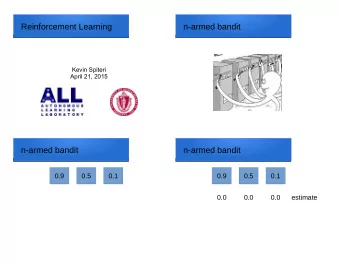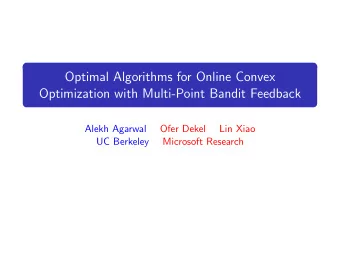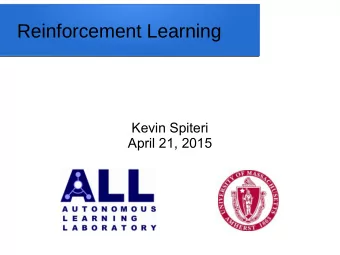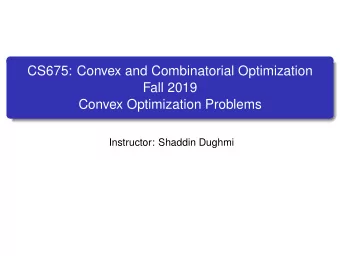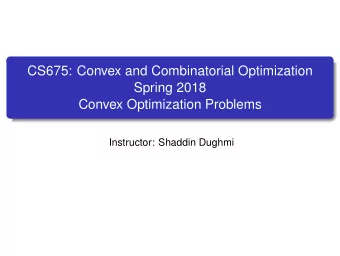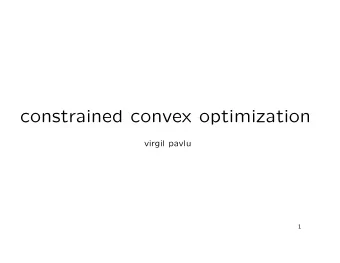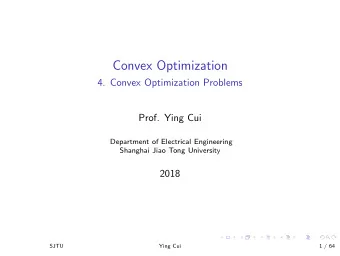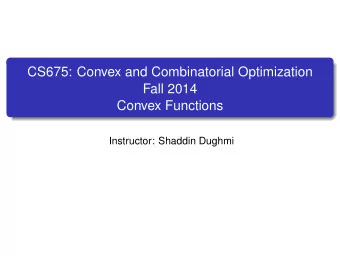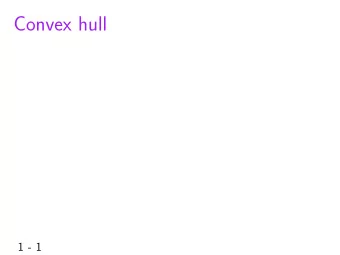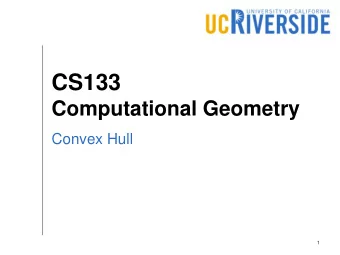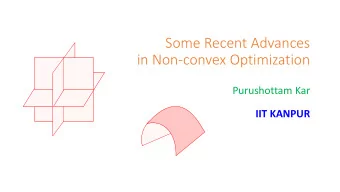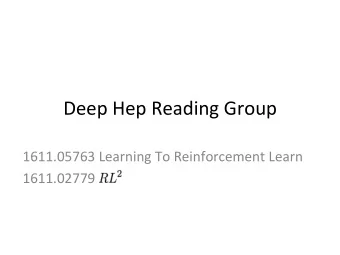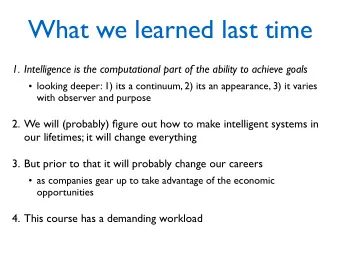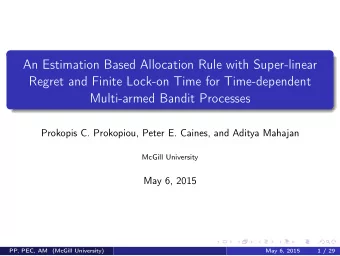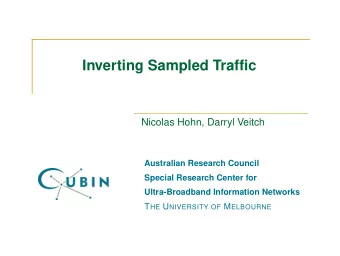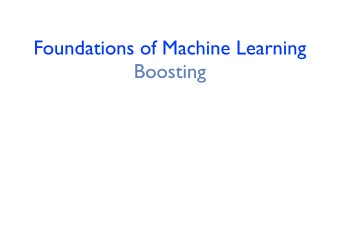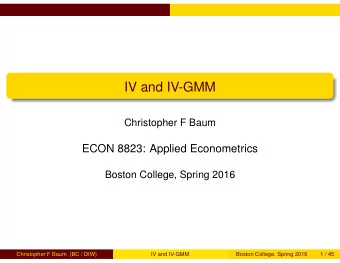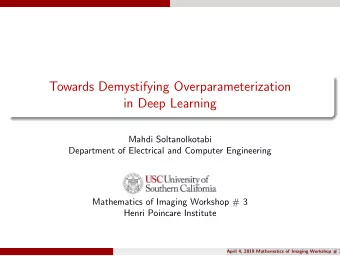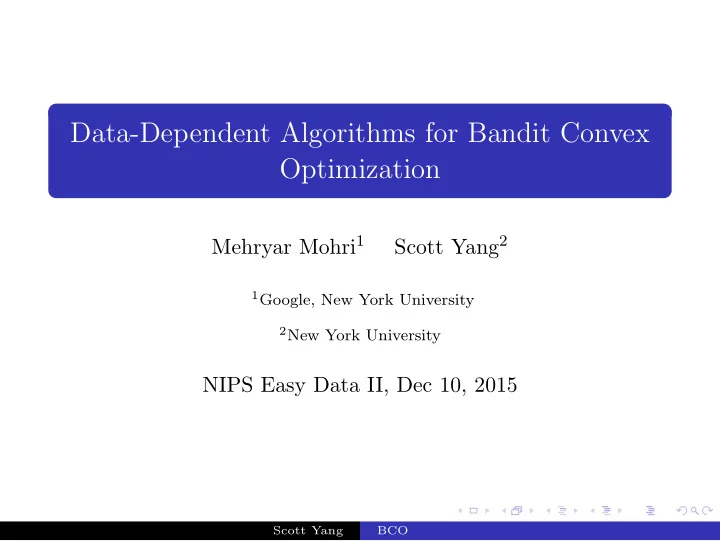
Data-Dependent Algorithms for Bandit Convex Optimization Mehryar - PowerPoint PPT Presentation
Data-Dependent Algorithms for Bandit Convex Optimization Mehryar Mohri 1 Scott Yang 2 1 Google, New York University 2 New York University NIPS Easy Data II, Dec 10, 2015 Scott Yang BCO Learning Scenario and Set-Up Bandit Convex Optimization
Data-Dependent Algorithms for Bandit Convex Optimization Mehryar Mohri 1 Scott Yang 2 1 Google, New York University 2 New York University NIPS Easy Data II, Dec 10, 2015 Scott Yang BCO
Learning Scenario and Set-Up Bandit Convex Optimization Sequential optimization problem K ⊂ R n compact action space, f t convex loss functions At time t , learner chooses action x t and suffers loss f t ( x t ) Goal: minimize regret T � max f t ( x t ) − f t ( x ) x ∈K t =1 Zero-th order convex optimization problem: learner has no access to gradient information! Scott Yang BCO
Historical results Summary of existing work: 1 Lipschitz [Flaxman et al 2005]: O ( T 3 / 4 ) √ 2 Smooth and strongly convex loss [Levy et al 2014]: O ( T ) 3 Smooth loss [Dekel et al 2015]: O ( T 5 / 8 ) 4 Strongly convex loss [Agarwal et al 2010]: O ( T 2 / 3 ) 5 etc. Remarks: 1 Results are not data-dependent 2 Algorithms require a priori knowledge of loss function regularity Scott Yang BCO
General framework for BCO Algorithms Idea: 1 Use zero-th order information to estimate the gradient 2 Feed the gradient estimate into a normal convex optimization algorithm Key part: estimating the gradient! Suppose we want to play x t Instead, sample and play point y t on ellipse E t around x t . ∇ f t ( x t ) ≈ ∇ E y ∈ E t [ ˜ f t ( y )] ≈ ∇ f t ( y t ) Scott Yang BCO
Data-dependent sampling Remark: Scaling of ellipse and learning rate both factor into the regret bound Historically both tuned based on worst-case data Algorithms do not adapt to easier data Questions: Can we derive algorithms that learn faster on easier data? Can we characterize what easier data is for BCO problems? Can we construct algorithms that consolidate some of the existing regret bounds? Scott Yang BCO
Data-dependent sampling Idea: Scale ellipse and learning rate optimally according to the actual data that we see. Consequences: Data-dependent regret bound in terms of average curvature of the ellpsoid. Adaptively attains smooth, strongly convex, etc. regret bounds as worst-case results. For more details, please stop by the poster. Thank you! Scott Yang BCO
Recommend
More recommend
Explore More Topics
Stay informed with curated content and fresh updates.
